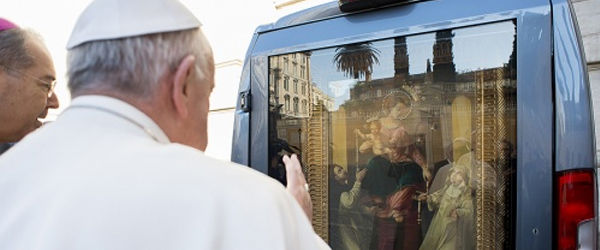To glibly speak of morals and ethics without saying exactly what we are suggesting by these terms is how many people, groups, governments and religions get themselves into trouble. Let us, at least, be clear in our usage and in our prejudices.
I understand “ethics” to be reflections upon or, if you will, ideas about “morality,” which, in turn, is behavior. Reflection upon action constitutes the matrix of morals and ethics. Morality is behavior answering the human quandary “What to do?” whereas ethics are reflections upon the question of “Why do it?”
The difference between saying a person is “moral” and saying a person is “ethical” is the difference between saying a person has “done” the right thing and a person has “thought” he has done the right thing.
The relationship between morals and ethics is very close, but distinct, even though many people discussing right and wrong behavior will — unfortunately, and to the detriment of linguistic acuity — use them interchangeably. When a person is called moral and ethical in the same breath, chaos and confusion reign.
What I am suggesting here is that “morality has to do with behavior,” whereas “ethics has to do with thinking” about and reflecting upon an idea of what is right and wrong. A moral person responds to the challenge of “what to do,” whereas an ethical person responds to the challenge of “what to do” with a reflective understanding of “why do it.”
We might argue that a moral person is not necessarily “ethical,” nor is an “ethical” person necessarily “moral.” It is quite possible for a person to “do the right thing” without ever reflecting upon “why it was done,” whereas it is equally possible for an individual to think about or reflect upon “why a thing should be done” without actually doing it.
It can be argued, though some will dispute it, that an individual who does the right thing without reflecting upon why to do it is not necessarily a moral person at all because the act of “doing the right thing” is integrally tied to an understanding of or reflection upon “why it is the right thing to do.” In other words, is “doing the right thing” without thinking about the “doing of it” really moral behavior?
The relationship between behavior and ideology, therefore, is central to our discussion. Let us consider “behavior” itself. Behavior as judged in human terms is “action,” whether that action is intentional, accidental or reflexive. We will avoid the use of the term “instinctual” because today it is fraught with psychological and political baggage which I will not unpack here. But to say a human act falls within one of these three categories of actuation — namely, intentional, accidental or reflexive — is quite defensible. An act, we are saying, is either “on purpose,” “inadvertent” or “a biogenic response” to a stimulus introduced either externally or internally to the human person.
We are here, then, faced in our discussion of “morality as behavior” with the prospects of an act done either (1) on purpose, (2) unintentionally and inadvertently, or (3) as a mere biological response to a stimulus. In this case, it is conceivable that a moral act may occur without “reflection,” by which we mean “intention.”
To do the right thing, the moral act, without intending to do it, as in the case of (2) and (3) above, hardly makes for a moral act at all. The right thing was done but not on purpose, not intentionally, but merely by accident or reflex. So, we have the possibility of an individual doing the “moral” thing without thereby being characterized as a “moral” person. In the instances of (2) and (3), that is, accidentally or reflexively, the right things were done but the doing of them was not moral because “intention” was not present in the acts.
There are, of course, “gradations” of moral behavior or actions related to right and wrong, namely, moral, immoral and amoral. Moral acts are those in which the “intent” is to do the right thing. Immoral acts are those in which the “intent” is not to do the right thing. Amoral acts are those in which there is no intent to do either the right or the wrong thing.
Ethics, on the other hand, has nothing directly to do with “acts” or “behavior,” but rather with “intentionality,” for intentionality necessitates an address to the “why” of an act without it being the act itself. The idea of doing the right thing is quite different from actually doing the right thing. The former is of the nature of “ethics,” whereas the latter is of the nature of “morals.”
One can be an outstandingly ethical person without being a moral person, for one can reflect upon moral action without engaging in that action. However, one cannot be an outstandingly moral person without being an ethical person, for moral action necessarily requires reflection upon moral action.
One can have ethics without morality, but not morality without ethics. Ethics, then, is ideology; morality is behavior.
Dr. Richard Boudreau is a maxillo-facial surgeon, attorney at law, forensic expert and bioethicist. At Loyola Marymount University in Los Angeles, he is an affiliate faculty member in the Bioethics Institute of the Bellarmine College of Liberal Arts.

